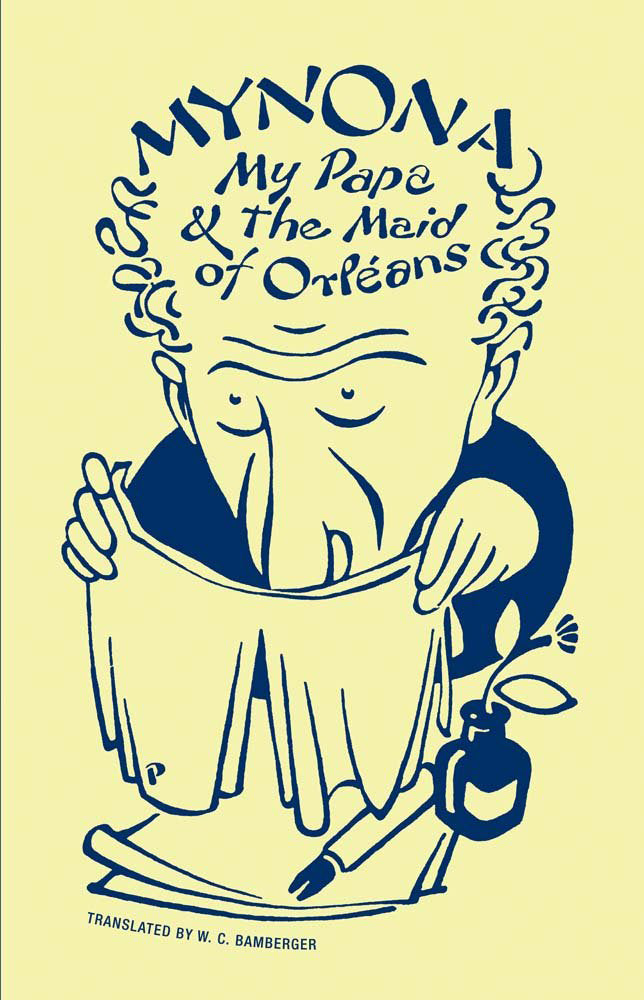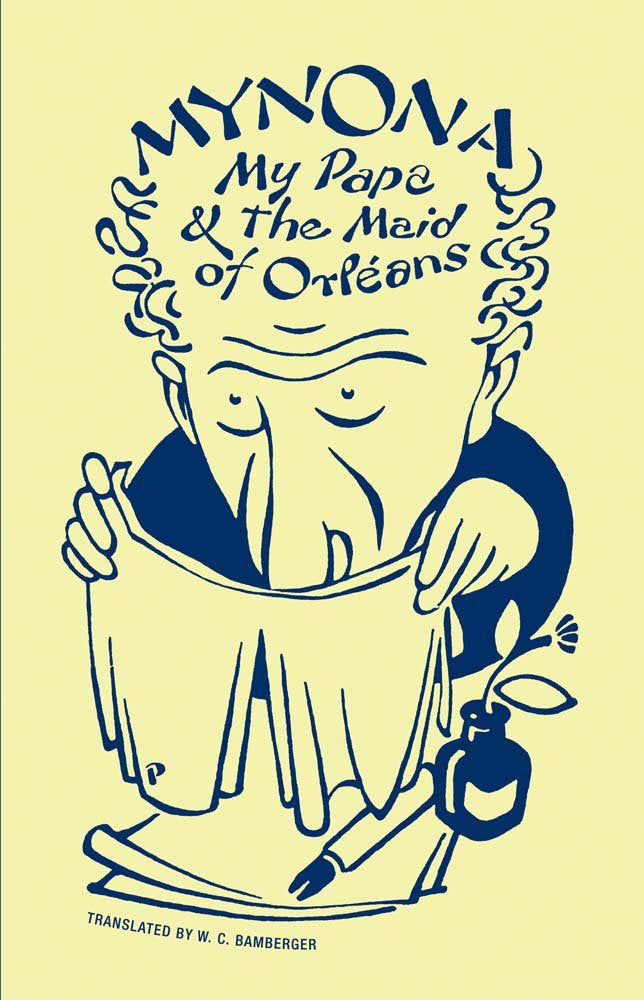My Papa and the Maid of Orléans and Other Grotesques
My Papa and the Maid of Orléans and Other Grotesques
Mynona
Couldn't load pickup availability
Translated, with an introduction, by W. C. Bamberger / July 2017 / 4.5 x 7, 96 pp. / 978-1-939663-26-9
Mynona’s 1921 companion collection of grotesques to The Unruly Bridal Bed is no less provocative and just as indefinable—even close to a century after its original German publication. These twelve off-kilter parabolic tales include items such as “The Chamber Pot as Lifesaver,” “The Art of Self-Embalming,” “The Maiden as Toothpowder,” “Your Panties Are Beautiful!” and “The Amorous Corpse.” E. T. A Hoffmann meets Immanuel Kant through the unlikeliest of looking glasses as Mynona spins out quasi-mystical meetings between cosmic entities and drawing-room romantics: a starry-eyed Buster Keaton skirting along the philosophical and literary borders of topics such as cuckoldry, necrophilia, schizophrenia, the end of history, and the love lives of objects. My Papa and the Maid of Orléans pokes twelve more holes in the material world and further demonstrate Mynona’s predilection for the philosophical pratfall.
“Mynona created a new kind of literary genre, which not only went beyond the inventions of Scheerbart but which also anticipated Dada, surrealism, and above all, contemporary literature of the absurd.”—Kurt Tucholsky
Mentioned in his day in the same breath as Kafka, Mynona, a.k.a Salomo Friedlaender (1871–1946), was a perfectly functioning split personality: a serious philosopher by day (author of Friedrich Nietzsche: An Intellectual Biography and Kant for Kids) and a literary absurdist by night, who composed black humored tales he called Grotesken. His friends and fans included Martin Buber, Walter Benjamin, and Karl Kraus. He died in Paris, ill and in poverty, after Thomas Mann refused to help him emigrate to the United States.
Press
“In his stories, written under the pseudonym ‘Mynona’ (Anonym backwards, as in Anonymous), Friedaener promotes his system by assaulting it with a series of grotesque, pornographic and comic-violent set pieces which collapse inwardly as if each tale has run away from its own reason but will meet it again in some transformed locale.”
—Martin Billheimer, Counterpunch


